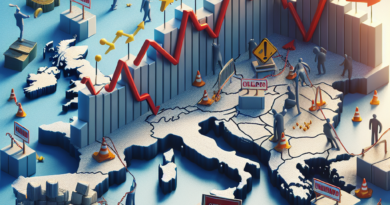Inflation: When Will It Return to 2%? Forecasts and Actions by the ECB
After the July ECB meeting: What’s Next?
After the July ECB meeting, analysts and investors are already looking ahead.
The first question on everyone’s mind is: when will inflation actually decrease to return to the 2% target? A first answer came the day after the Eurotower meeting from the results of a survey conducted by the central bank among professionals and financial experts.
The second issue that markets are currently pondering concerns the next moves by Lagarde and other members.
The governor’s press conference did little to clarify doubts and deliberately omitted any details on the September meeting.
It is not surprising, therefore, that some analysts are now pricing in only one more rate cut within the year.
In this still uncertain context, here’s what professionals are expecting regarding European inflation and what the forecasts are for ECB interest rates.
In the Survey of Professional Forecasters (SPF) by the ECB for the third quarter of 2024, it emerged that the central bank will reach its inflation target in 2025.
Consumer prices are expected to rise by 2% next year, in line with the previous survey’s prediction.
The projection for 2024 also remained unchanged at 2.4%, while the outlook for 2026 has dropped to 1.9% from 2%.
Long-term expectations for both overall inflation and core inflation remained stable at 2%.
Regarding growth, the forecast is for a +0.7% in 2024 compared to the 0.5% in the last survey cycle, although the prospects for 2025 have worsened to 1.3% from 1.4%.
These results came a day after the ECB kept interest rates at 4.25%, without providing a clear signal on when it will further ease monetary policy.
Market bets are on two additional cuts in 2024, although officials are questioning the feasibility of this move.
What Will the ECB Do with Interest Rates?
The ECB has kept rates unchanged, and its president, Christine Lagarde, declared that her next decision on September 12 will be “completely open,” far from declaring victory over inflation.
However, French governor Francois Villeroy de Galhau and his Lithuanian counterpart Gediminas Simkus offered clearer indications in interviews on Friday, supporting market expectations for two more rate cuts this year, in September and December.
Villeroy stated in an interview with French radio BFM Business that, “Market expectations for interest rate movements seem quite reasonable at the moment.” Simkus went further, stating in a press conference in Vilnius that rates “will continue to fall, and significantly, by one percentage point each year.”
Simkus emphasized, “If there are no surprises or black swans and inflation converges as expected, further monetary policy loosening will undoubtedly be on the table for the upcoming meetings.” He added, “I have no doubts that the rate cut issue will be discussed in September,” highlighting that it’s not clear if a move will materialize as the ECB still needs to evaluate new data in the coming weeks.
Others have been more cautious, with Estonian banker Madis Muller warning against premature commitments.
Muller acknowledged market expectations for at least one more rate cut but declined to comment further.
In an interview with local radio Aripaev, he stressed that service sector inflation around 4% and wage growth at 5% “are not in line with the 2% target.” However, he stated, “I think it’s realistic that inflation will continue to trend downwards in the next 12 months.”
Finnish official Olli Rehn also cautioned against preemptive commitments on a specific path for financing costs, stating there are still upside risks to prices.
The doubts about the ECB’s next steps – and the trajectory of inflation – are still to be resolved.




